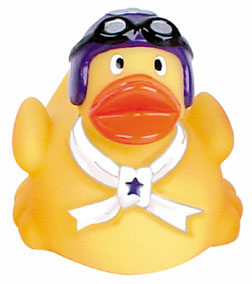 Changing apartments last weekend really brought home the fact that I have been flying way too much lately. I counted 18 long haul toothbrushes and countless little mini toothpaste tubes. If you need earplugs and sleep masks, I am your man. The odd thing about flying as an academic is that I just was not doing it right till recently. We spend lots of time diving deep into our chosen research topics, but very little time exploring the things that might improve the quality of our lives.
Changing apartments last weekend really brought home the fact that I have been flying way too much lately. I counted 18 long haul toothbrushes and countless little mini toothpaste tubes. If you need earplugs and sleep masks, I am your man. The odd thing about flying as an academic is that I just was not doing it right till recently. We spend lots of time diving deep into our chosen research topics, but very little time exploring the things that might improve the quality of our lives.
As academics, we often fly a lot to conferences, meetings, and school visits, but take whatever flight is offered to us by staff or cheapest on Kayak that day. Given that we tend to have very little free time, losing tens hours of my life to a cramped economy seat grates me more than most things. Add in the time for airport transfers and the situation only gets worse.
If you remain loyal to airlines and fly bunches in the course of work, there are rewards. At this point I don’t have to pay for my own inter-Europe flights. I can pretty much use my miles to go to anywhere in Europe on any day. The more I have flown with British Airways, the more they take care of me. Yet, getting to a level is tough; it’s not just about flying a bunch. I had learn about how BA operates. I basically had to study, FlyerTalk became my best friend. The FlyerTalk guides and forums are very helpful. Below I will provide a link for the main US and British carrier’s FAQ pages. The trick is to learn all the little ins and outs, the ways to maximize miles through special offers or loopholes. When I came back to the US from APSA, I went to visit my family in Los Angeles, via Puerto Rico. Getting a flight to Puerto Rico was pretty cheap given the amount of points you get for the flight, a loophole in the One World system.
So what do you need to do? For one, pick an alliance and stick to it: the simplest rule and the hardest to follow. Simply find an airline you are happy with and remain loyal. Loyalty will pay off. Consistent business will build trust and recognition. Of course this does not mean that you reward failure or ineptitude, it simply means that you do not jump just because the grass is greener on the other side. Stick to a program.
The question is, which program do you pick? For many the choice is easy. If you are in the South, Delta is about your only choice. If you live near a routing hub, just go with what is easier. Airlines buy slots at the major airports and these slots are limited; it does not help your situation if your chosen alliance does not even operate out of where you need to travel.
I personally prefer American and always have. They seem more reliable than United and have decent rewards for their program. Since moving to the UK, I have jumped to British Airways because it is basically only airline that can get me from Scotland to Los Angeles (family home). An added issue along the way became the sometimes long delays left in Terminal 5 of Heathrow. Being the BA hub and sole operator working out of this terminal, BA controls all the lounges. So the goal became automatic, I wanted lounge access. Basically I needed it so I could get work done and recharge my laptop. Knowing which perk you need and how to get sets a nice goal.
Besides picking an alliance, you must also know your rights. Airlines try to get away with all they can considering the cost of fuel. Any airline you fly with, even if you do not fly frequently with them, get a membership number before you fly. There is then less of a chance that they will mess with your booking and you should also now have a help line number. This is key in case of delays, reroutes, and or weather issues. Instead of running to a gate agent for help with the masses, simply call the number and deal with your issues on the phone. The other reason to claim a membership number for all airlines (but obviously credit your flight with your main program) is that if things go wrong, they will have to compensate you in cash but also in miles. I never credit any flights to my American account anymore, yet I still have a bunch of miles in my account from late bags, delays, and other issues, same with United and Delta.
The EU has its own compensation system that is very rigid. I don’t really know the ins and outs at this point, but there are fixed costs airlines have to pay for any delay over 4 hours, lost or delayed bags, even food vouchers for time in the terminal. The travel blog Head for Points has the details for a service that will seek compensation for you if you don’t want to take the time yourself.
Always make your credit cards work for you. You should be earning something on everything you buy. American Express has its own rewards program which comes in handy as the points can be transferred to most airline alliances. Go that route if you want flexibility. If you stick to one airline, get their credit card. Same goes for hotel chains. Hilton has a very good deal that gives you Gold status (free upgrades, internet, and full breakfast) when you sign up for the card. This also comes in handy as many ISA conferences use Hiltons are the HQ. Hilton also has a fast track rewards offer to get you to the higher tier.
There are other tricks of the trade. Travel agents can be your friend, they can work the ITA system (basically the R of the airline industry) in ways a civilian can’t. What you save through them often well covers their fees, plus they often have special arrangements with hotels, car transfer services, and tours. Also look out for airline challenges and status match opportunities. Say you have a high level of status with United but are thinking of switching, well call American and ask for a status match or a status challenge. Most airlines will often offer this making the transition easy.
The key to all this is control. We all want control (at least academics do) but this was key for me since I am a severe claustrophobic and quite tall. Knowing about airlines gives you a level of control and information that typically is not on offer for those who fly. You often are at the mercy of airlines, but if you know all the tricks, perks, and right things to say, your time on airplanes can actually be quite enjoyable and productive.
FlyerTalk FAQs
Valeriano serves as the Donald Bren Chair of Military Innovation at the Marine Corps University.His work also includes serving as a Senior Fellow at the Cato Institute and as Senior Advisor to the Cyberspace Solarium Commission.


You can’t be serious –this is for an in-flight airline magazine, isn’t it? Even the (unwittingly) IR-esque “Choose an alliance and stick with it” sounds like something I’d read on a travel blog….
If only the Duck paid like a travel magazine.
This is the most valuable thing I’ve read in the Duck in quite some time. Thanks, Brandon.
Flying less might be a far easier answer to many of your (and our) problems. I was surprised that you did not address this option. The profession does not require us to fly that much; we choose to fly (and feel as part of the global mobile elite while doing it).
I know flying less is easier to do in Europe but even in the US/elsewhere there might be an option of giving up on long-haul flights and attending smaller workshops and conferences in one’s area/region.
Just out of curiosity, how much do people fly work-related?
I wish flying less was an option, but I have a family to consider back in the States plus conferences (I usually attend ISA and other other US conference). On top of that there are invited talks, media appearances, and meetings for grants. I have not even gotten into those that have to site visits. My University puts a premium on media appearances and what they call internationalization.